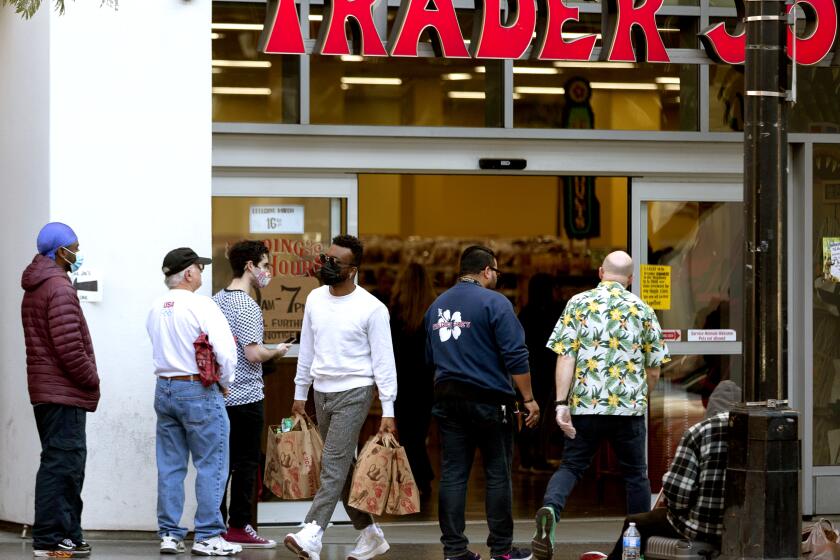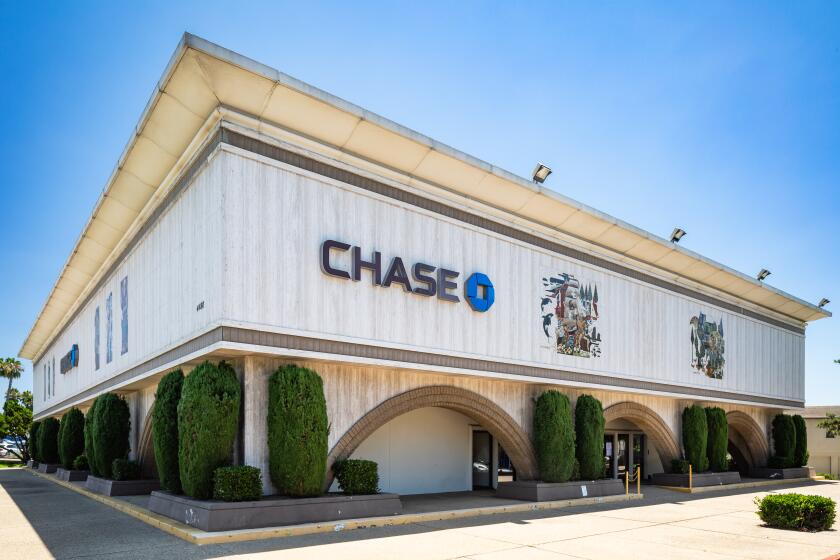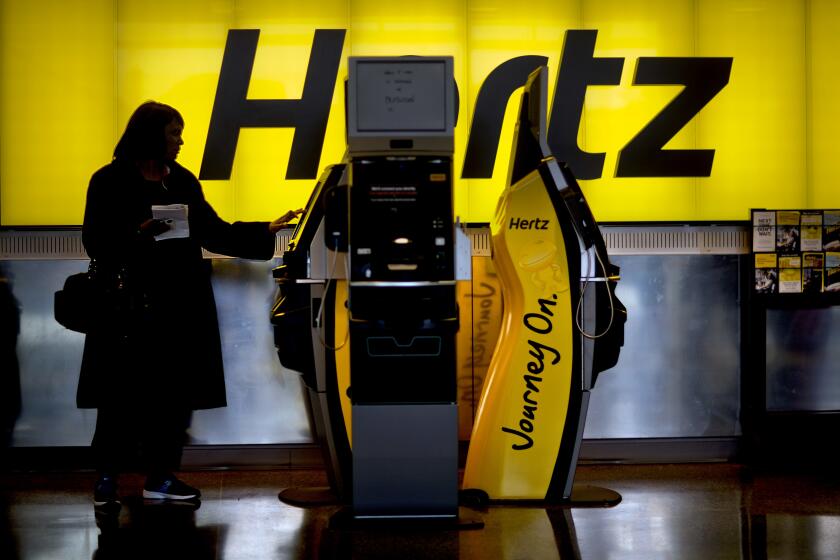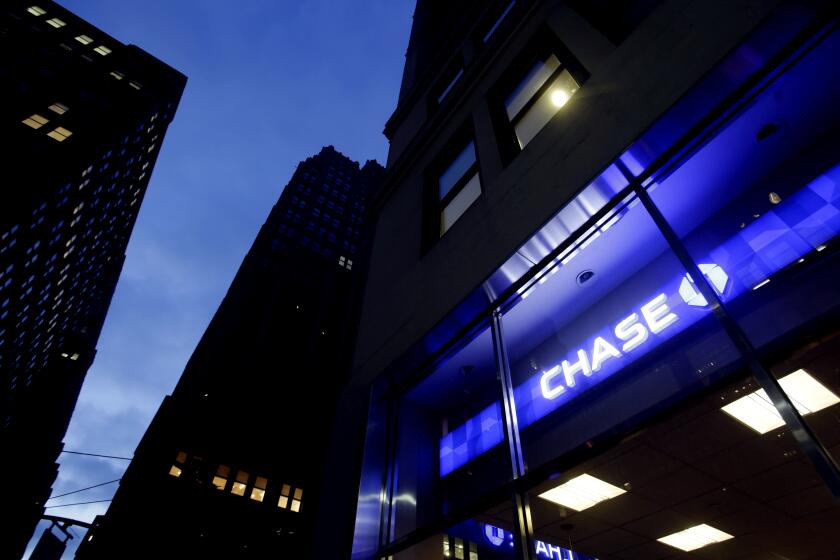Column: In this, my final column, one last consumer problem to be solved
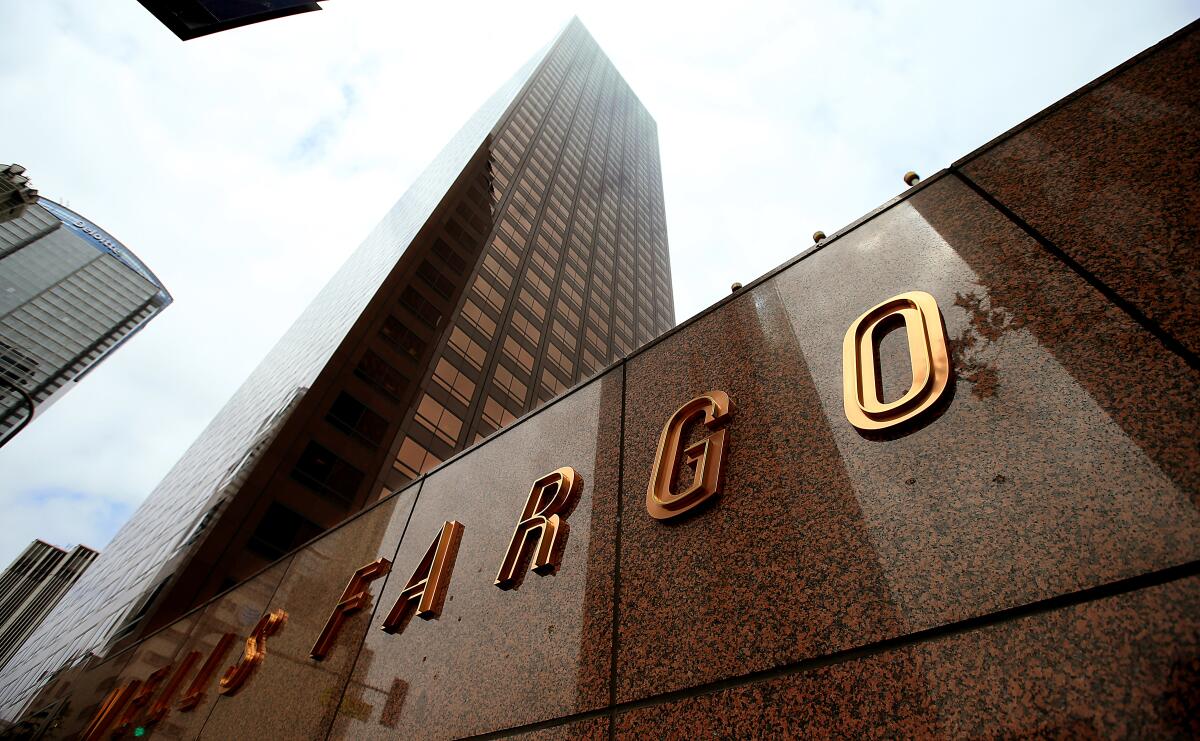
John and Dorothy Laguna opened a Wells Fargo checking account in 2014.
Wells Fargo opened three more accounts in the Lagunasâ name not long after â several of the millions of bogus accounts the bank opened without peopleâs permission to meet sales quotas.
The Dana Point couple subsequently joined a massive class-action lawsuit against Wells, which in 2017 resulted in a $142-million settlement. The bank also paid billions of dollars in fines.
The Lagunasâ share of the settlement was about a hundred bucks. But OK, the couple decided. They were ready to move on.
âI thought we were done with them,â John Laguna, 82, told me.
Nope. Last fall, they started receiving notices from Wells that a payment of $104.79 was overdue for a charge to one of the fake accounts opened in their name that the Lagunas assumed had been closed years ago.
Wells Fargo had found a way to charge some of its customers $30 to transfer funds from one division of the bank to another when paying off a mortgage.
The charge was for a meal at a Florida sushi restaurant. The couple was home in Southern California at the time. Theyâve never been to Florida.
âThe bank told us not to worry about it,â Laguna said. âThey said theyâd take care of it.â
Two months later, getting nowhere, he turned to me for help. And I was happy to oblige.
But itâs a bittersweet moment.
This is my final column for the Los Angeles Times. Beginning next week, Iâll be moving into television full-time.
While the prospect of a new chapter in my journalism career is very exciting â Iâll continue fighting the good fight on behalf of consumers â this marks the close of my tenure as a newspaperman.
Iâve worked for newspapers since I was a student at UC Berkeley, including stints at the San Francisco Examiner, the Bangkok Post, the Japan Times, the San Francisco Chronicle and now the biggest newsroom west of the Mississippi.
Thereâs no need for me to point out the precarious state of the newspaper business. This industry is now very different from the one I fell in love with in college.
I pray things get better â both for my hardworking colleagues and for the millions of Americans who rely on a free press to speak truth to power and safeguard democracy.
Itâs customary, I suppose, to indulge in a little summing-up when one makes a significant career move. Iâve been writing this column â first for the Chronicle, now The Times â for nearly a quarter-century.
The criticism Iâve heard most frequently is that Iâm anti-business. Not so. Iâm a believer in capitalism and have great respect for businesspeople who meet so many of societyâs needs.
What I am is pro-fairness. What I am is pro-accountability.
Online eyewear sites are pushing prices for glasses down. But the markups for most frames and lenses remain exorbitant.
I believe that itâs perfectly fine to make a profit as long as that profit is earned equitably and honestly, and by treating customers with the respect they deserve.
But when businesses cross the line â when they make their money with practices that are unfair, unethical or abusive â thatâs when they need to be called to order.
And for 25 years now (and counting), Iâve been privileged to be someone people could seek out to right wrongs, fix problems and perhaps restore a little decency to the corporate world.
Longtime readers know the industries that cropped up most frequently in my columns. These include the hospitals and drug companies that charge ridiculous amounts for healthcare.
They include the insurers that abandon patients in their time of need, the banks that leave customers to the mercy of con artists, the tech outfits that say theyâre in the business of changing the world but are more interested in stripping you of what little privacy remains.
Visitors to the Trader Joeâs in Hollywood are being instructed to download a parking app to their phones. Doing so will reveal a lot about you.
People often point out that, considering the rapacious behavior of many businesses, Iâll never be out of work as a consumer defender. Sad but true.
Yet Iâm encouraged by the entrepreneurs who recognize an opportunity to succeed by treating people well, not to mention the many, many businesspeople Iâve met over the years whose hearts are in the right place, even if theyâre often hamstrung by policies that limit their ability to act.
At the same time, not a week goes by without someone sharing with me an act of corporate pettiness, a needless outrage, that makes me ask, yet again, why some companies feel they can treat their customers with seeming contempt.
Itâs so unnecessary. Itâs so incredibly shortsighted.
And itâs just wrong.
That was my mind-set the other day when the Lagunas contacted me with their Wells Fargo situation.
Here were two people who opened a Wells account with a natural expectation that the bank would be a trustworthy steward of their money.
They couldnât have known that at the same time they became customers, Wells was behaving with breathtaking greed and dishonesty, opening an estimated 3.5 million deposit and credit card accounts without peopleâs approval.
At first, the bank tried to blame rogue employees and sacked more than 5,000 workers. Then came reports that Wells also was illegally repossessing the cars of service members, signing people up for insurance they didnât need and wrongly billing mortgage clients.
Despite several signs of suspicious activity, Chase bank did nothing to prevent a scammer from raiding a Southern California coupleâs checking account.
Lawmakers accused then-Chief Executive John Stumpf of running a âcriminal enterprise.â He quit his job.
Ultimately, as the fines and lawsuits piled up, Wells Fargo took out full-page newspaper ads voicing âregretsâ for past deeds. The bank said it had learned valuable lessons and had turned over a new leaf.
Its treatment of the Lagunas suggests it still has a ways to go.
The couple kept receiving notices of an unpaid charge on the fake account Wells opened â and should have closed â on their behalf.
They kept phoning the bank to resolve the matter and kept being told not to worry, that Wells was on top of things. And then another payment-due notice would arrive.
âWe started thinking this could affect our credit score,â Laguna told me. âIt became a real problem.â
A problem that should never have happened, and that should have been remedied immediately. Yet as the weeks passed, Laguna said, he received no sense from the bank that it took the matter seriously or was treating it with urgency.
As I noted above, hassles like this are utterly needless. Maybe they result in some nickel-and-dime gains for businesses from people who throw in the towel and pay whateverâs being demanded.
An L.A. man can prove he was on a plane awaiting takeoff when Hertz says he returned his rental car. Nevertheless, Hertz imposed a late fee.
But more often than not, all they accomplish is a squandering of any goodwill that might exist and a conveyance that the company doesnât care about you or your loyalty.
In November, I wrote about Wells Fargo charging some mortgage customers a $30 fee to move money from one division of the bank to another when paying off their loan.
Unable to satisfactorily defend such a ludicrous charge, Wells told me it would get rid of the fee.
In the Lagunasâ case, I reached out to the bank and asked, as is so often the case, what the hell?
And, as is so often the case, the attention of a journalist, and the implicit threat of a PR hit, prompted Wells to take a closer look at things and to escalate the matter to someone empowered to actually do something.
Laguna said that, following my intervention, he received a call from a senior vice president at the bank who promised to finally drive a stake through the heart of the fake account and to make the $104.79 sushi charge go away.
Wells also said it would send the Lagunas a check for $125.
âWe are focused on doing everything we can to combat fraud, protect consumers and support fraud victims,â said Mary Eshet, a bank spokesperson. âWhen weâre notified about potential fraud, we have a thorough investigation process to research the claim.â
She said Wells is sorry âfor the inconvenience and difficultyâ experienced by the Lagunas. âWe regret this happened, and continue to evaluate and make improvements to our practices and procedures.â
Laguna responded that he appreciates the sentiment but still considers the episode âa real fiasco.â
âA few days ago, they were saying I had to file a police report and submit all sorts of documents,â he said. âNow apparently thatâs not necessary.â
Like most consumers I write about, Laguna said it shouldnât take a journalist to compel a company to do right. âThis is something they should handle on their own, after a single call from a customer.â
I couldnât agree more.
And if such a 180-degree change in corporate behavior puts me out of a job, so be it. This is a fight Iâd be happy to finish. There are other stories to be reported.
In the meantime, the dance continues.
I may no longer be a proud inhabitant of these pages or this website. But Iâm still here, still sticking up for the little guy.
See you on TV.
A Southern California man opened a Chase account for his young daughter. He discovered that someone was withdrawing funds. Not our problem, Chase said.
More to Read
Inside the business of entertainment
The Wide Shot brings you news, analysis and insights on everything from streaming wars to production â and what it all means for the future.
You may occasionally receive promotional content from the Los Angeles Times.


